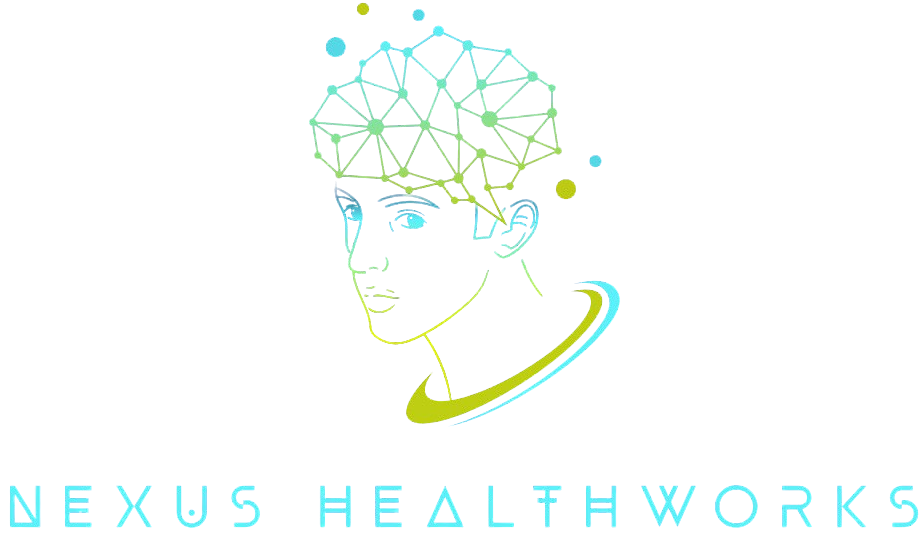Depressive disorders are complex mental health conditions that affect how individuals feel, think, and function daily. They go beyond occasional sadness, often resulting in persistent feelings of emptiness, hopelessness, and a loss of interest in activities once enjoyed. Common forms include major depressive disorder (MDD), persistent depressive disorder (dysthymia), and seasonal affective disorder (SAD).
At Nexus Healthworks NP in Psychiatry P.C., we provide comprehensive and compassionate care for depressive disorders. Our goal is to help individuals of all ages regain emotional balance and lead fulfilling lives through a combination of psychotherapy, medication management, and holistic support.
Recognizing the Symptoms of Depressive Disorders
Depressive disorders present a wide range of symptoms that can vary in intensity and duration. Common signs include:
- Persistent sadness or a low mood lasting weeks or longer.
- Loss of interest or pleasure in activities once enjoyed.
- Fatigue or lack of energy, even with adequate rest.
- Difficulty concentrating or making decisions.
- Changes in appetite, leading to weight loss or gain.
- Sleep disturbances, such as insomnia or excessive sleeping.
- Feelings of worthlessness, hopelessness, or guilt.
- Restlessness or slowed movements.
- Physical symptoms like headaches or stomach aches without a clear cause.
- Thoughts of death or suicide.
If these symptoms interfere with daily life, seeking professional care is essential.
Why Treating Depressive Disorders Is Crucial
Depressive disorders are more than emotional struggles—they affect every aspect of life, including physical health, relationships, and career. Addressing them promptly is essential because:
- Chronic depression can lead to co-occurring conditions like anxiety, substance abuse, or physical illnesses such as heart disease.
- Untreated depressive disorders often worsen over time, increasing the risk of severe episodes or suicidal thoughts.
- Depression affects relationships, creating strain and misunderstandings with loved ones.
- Academic and professional performance can suffer due to reduced focus and motivation.
- Early treatment provides tools and strategies to manage symptoms effectively, preventing long-term impacts.
- Comprehensive care helps individuals rebuild confidence, set goals, and improve their overall quality of life.
Seeking treatment is a proactive step toward recovery and emotional well-being.
How We Treat Depressive Disorders
At Nexus Healthworks NP in Psychiatry P.C., we use an individualized approach to treat depressive disorders, addressing the unique needs of children aged six and older, adolescents, and adults.
Steps in the Treatment Process
- Comprehensive Assessment and Diagnosis: Treatment begins with an in-depth evaluation to identify the type of depressive disorder and any contributing factors.
- Customized Treatment Planning: Based on the diagnosis, we create a personalized care plan that may include psychotherapy, medication, and lifestyle recommendations.
- Psychotherapy to Build Coping Skills: Evidence-based therapies, such as cognitive-behavioral therapy (CBT), help patients identify negative thought patterns and develop healthier coping mechanisms.
- Medication Management (if necessary): Antidepressants, such as SSRIs or SNRIs, may be prescribed to alleviate symptoms and restore emotional balance. These are closely monitored for effectiveness and side effects.
- Holistic Support for Overall Wellness: Recommendations for exercise, nutrition, and stress management are integrated to complement clinical treatment.
- Ongoing Monitoring and Adjustments: Regular follow-ups ensure that the care plan remains effective, allowing adjustments as needed based on progress and feedback.
Building Long-Term Resilience
While depressive disorders are challenging, proactive steps can help prevent relapse and maintain emotional stability. Key strategies include:
- Adhering to Treatment Plans: Consistency with therapy and medication helps prevent the recurrence of symptoms.
- Developing Healthy Routines: Regular sleep, balanced nutrition, and physical activity support emotional health.
- Building a Support Network: Engaging with family, friends, or support groups encourages and reduces isolation.
- Recognizing Early Warning Signs: Awareness of triggers or returning symptoms allows prompt intervention.
- Managing Stress Effectively: Techniques such as mindfulness, yoga, or journaling can reduce the impact of stress.
- Staying Engaged with Therapy: Continued participation in therapy reinforces coping strategies and fosters ongoing growth.
These measures empower individuals to take control of their mental health and live fulfilling lives.
What Patients Can Achieve
With proper treatment, individuals with depressive disorders can experience profound improvements in their quality of life. Those who actively engage in therapy, follow their treatment plans, and cultivate strong support systems often report a significant reduction in the severity and frequency of depressive episodes. Improved relationships with family, friends, and colleagues become more attainable as emotional stability increases.
Many patients find renewed energy and motivation to pursue personal and professional goals, building a sense of accomplishment and fulfillment. Greater resilience in handling emotional challenges and increased confidence in navigating daily life are common outcomes. Overall, treatment alleviates symptoms and empowers individuals to reclaim their lives, fostering a stronger sense of purpose and long-term well-being.
Frequently Asked Questions
What causes depressive disorders?
Depressive disorders are caused by a combination of genetic, biological, environmental, and psychological factors. Identifying these causes helps guide effective treatment.
Can children experience depressive disorders?
Yes, children can develop depressive disorders. Early diagnosis and treatment are essential for supporting their emotional and developmental needs.
Are depressive disorders treatable?
Yes, most individuals experience significant improvements with therapy, medication, and lifestyle changes.
How long does treatment for depression take?
The duration of treatment varies based on the individual and the severity of the condition. Many patients benefit from ongoing care to maintain emotional stability.
Do depressive disorders require medication?
Not always. Some individuals find relief through therapy alone, but medication may be recommended for moderate to severe symptoms.
Start Your Journey to Recovery Today
Living with a depressive disorder can feel overwhelming, but help is available. At Nexus Healthworks NP in Psychiatry P.C., we are dedicated to providing compassionate, expert care for children, adolescents, and adults.
If you or a loved one is struggling with depression, take the first step toward healing. Contact Nexus Healthworks NP in Psychiatry P.C. today to learn more about our personalized treatment options. Together, we can work toward a brighter and more fulfilling future.




